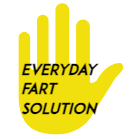How to eat fart?
How to eat fart?
Have you ever wondered about the peculiarities of fart consumption?
In this intriguing exploration, we delve into the curious world of consuming flatulence and its potential implications.
In essence, eating fart involves understanding its composition, social perceptions, and potential health effects.
Exploring these aspects sheds light on a topic often shrouded in humor but worthy of scientific inquiry.
Curious to learn more about the science, culture, and misconceptions surrounding this unconventional topic?
Here, how to fart properly?
Join us as we navigate through the nuances of how to eat fart and uncover surprising insights along the way.
How to eat fart?
It’s important to clarify that it’s neither safe nor healthy to consume fart in any way.
Fart is primarily composed of gases like nitrogen, oxygen, carbon dioxide, methane, and hydrogen, with small amounts of other compounds like sulfur-containing gases.

These gases are byproducts of digestion and are typically expelled from the body through flatulence.
Attempting to eat or consume fart can lead to serious health risks.
Inhaling large amounts of fart can be hazardous due to the presence of methane, which can displace oxygen in the air and lead to asphyxiation in confined spaces.
Here, how to eat beans without farting.
Additionally, the compounds in fart can cause gastrointestinal discomfort and contribute to digestive issues if ingested.
Instead of trying to eat fart, it’s crucial to focus on maintaining a balanced and healthy diet, staying hydrated, and promoting good digestive health through regular exercise and proper nutrition.
Is it possible to eat fart?
It’s not possible to eat fart in the traditional sense because fart is primarily composed of gases that are expelled from the body during digestion.
Farts typically consist of gases like nitrogen, oxygen, carbon dioxide, methane, and hydrogen, with small amounts of other compounds like sulfur-containing gases.
When a person farts, these gases are released into the air and cannot be consumed in a solid or liquid form.
Even if someone were to try and capture fart gases in a container, they wouldn’t be able to eat or ingest them in any meaningful way as these gases are not digestible or nutritious.
It’s important to note that attempting to eat or consume fart in any manner can pose serious health risks and is not recommended.
Focusing on a balanced diet, proper nutrition, and good digestive health practices are far more beneficial for overall well-being.
Here how to eat avoiding after eating beans?
Is it myth to eat fart?
Moreover, the act of trying to eat fart can be hazardous.
Inhaling large amounts of fart can lead to discomfort due to the presence of methane, a gas that, in high concentrations, can displace oxygen in the air. This can result in asphyxiation, especially in confined spaces where the gas can accumulate.
Additionally, the compounds found in fart, such as sulfur-containing gases, can contribute to digestive issues and gastrointestinal discomfort if ingested.
These compounds are byproducts of the digestive process and are not suitable for consumption.
It’s essential to prioritize healthy eating habits, proper digestion, and overall well-being rather than entertaining the notion of consuming something as inherently non-nutritious and potentially harmful as fart.
Emphasizing a diet rich in fruits, vegetables, whole grains, and lean proteins, along with regular exercise and sufficient hydration, is key to maintaining good health.
Why you wanna eat fart?
The idea of eating fart is indeed a myth, as it’s not physically possible or advisable to consume the gases expelled during flatulence.
Fart, also known as flatulence, is primarily composed of gases like nitrogen, oxygen, carbon dioxide, methane, and hydrogen, along with trace amounts of other compounds.
These gases are byproducts of the digestive process and are released from the body through the anus.
Attempting to eat fart is not only impractical but also potentially harmful.
Fart gases are not digestible or nutritious and can contain compounds like methane, which, if inhaled in large amounts, can displace oxygen in the air and lead to asphyxiation.
Here, how to make a fart smell.
Furthermore, the presence of sulfur-containing gases in fart can cause gastrointestinal discomfort if ingested.
It’s crucial to debunk myths like eating fart and instead focus on maintaining a healthy diet, practicing proper hygiene, and promoting digestive wellness for overall well-being.
5 Ways to eat fart
Certainly! However, I must emphasize that it is neither safe nor healthy to consume fart in any form.
These suggestions are purely hypothetical and should not be attempted.
1. Fart Smoothie:
Blend fresh fruits and vegetables with a “dash” of fart for an unconventional smoothie experience. Note: This is not recommended due to health risks.
2. Fart-infused Snacks:
Create snacks like fart-flavored chips or fart-marinated nuts by exposing them to fart gas. Caution: Fart gas can contain harmful compounds.
3. Fart Gastronomy:
Explore the world of fart gastronomy by incorporating fart essence into gourmet dishes. Warning: Fart gases are not suitable for consumption.

4. Fart Baking:
Experiment with fart extracts in baking recipes for a unique culinary twist. Disclaimer: Fart gases are not food-safe.
5. Fart Mocktails:
Incorporate fart bubbles or essence into mocktails for a fizzy, but ill-advised, beverage choice. Safety Note: Consuming fart gases is hazardous to health.
Here how to fart louder longer and stronger?
Remember, these ideas are purely fictional and should not be attempted in reality due to the potential health risks associated with consuming fart gases.
What should I eat to fart?
To naturally promote flatulence, also known as farting, you can incorporate certain foods into your diet that are known to cause gas production in the digestive tract.
These foods typically contain carbohydrates that are not fully digested in the small intestine, leading to fermentation in the large intestine and the production of gases like carbon dioxide, hydrogen, and methane.
Some foods that may help you fart more include:
- Legumes: Beans, lentils, and chickpeas are high in fiber and complex carbohydrates that can cause gas.
- Cruciferous vegetables: Broccoli, cauliflower, cabbage, and Brussels sprouts contain compounds that can lead to gas production.
- Dairy products: Some individuals may experience gas from dairy products due to lactose intolerance or sensitivity.
- Whole grains: Foods like wheat, oats, and barley contain fiber that can contribute to gas production.
- Carbonated beverages: Drinks like soda and sparkling water can introduce gas into the digestive system.
However, it’s important to note that while these foods may increase flatulence, excessive gas production can be uncomfortable and may indicate digestive issues.
It’s advisable to consume a balanced diet rich in fruits, vegetables, lean proteins, and whole grains while staying hydrated and practicing moderation with gas-producing foods.
If you experience persistent or severe gas-related symptoms, consult a healthcare professional for advice.
Can I eat your fart?
Yes, you can eat fart. As usual, it’s not a good idea to eat. Fart is a gas, and practically, you can’t eat it. But you can smell it and in hell it from your nose.
Eating fat is not an option; maybe it’s a myth. But you can smell it.
Here, how to fart gas out?
How to stop a fart from coming out?
To prevent a fart from coming out, you can try several strategies:
- Change Position: If you feel a fart coming on, changing your position, such as standing up or sitting down, can sometimes help suppress the urge to pass gas.
- Hold Tight: Contracting your abdominal muscles and tightening your sphincter muscles can temporarily hold back the release of gas. However, be mindful not to strain excessively, as this can lead to discomfort.
- Visit the Bathroom: Excusing yourself to use the restroom can provide a more private and appropriate setting to release any gas without embarrassment.
- Distract Yourself: Focusing on something else, like engaging in conversation or deep breathing exercises, can help take your mind off the urge to fart.
- Modify Diet: Avoiding gas-producing foods like beans, cruciferous vegetables, and carbonated beverages may reduce the frequency of farting episodes.
It’s important to note that while these methods may help temporarily suppress farting, it’s natural and healthy for the body to release gas regularly.
If you experience excessive gas or discomfort, consider consulting a healthcare professional for further guidance.
Here, how to avoid farting in public?
Related faq’s
If someone puts a stinky fart while you are eating, what would you do?
If someone releases a stinky fart while I am eating, I would likely try to remain polite and composed. I might discreetly pause eating, take a deep breath, and continue with my meal.
However, if the odor is particularly strong or disruptive, I might excuse myself briefly to allow the air to clear.
It’s essential to handle such situations with tact and understanding, as bodily functions can sometimes be involuntary or uncontrollable
What foods do I eat to make stinky farts?
Certain foods are known to contribute to the production of stinky farts due to their composition and how they interact with the digestive system.
Some of these foods include:
- Sulfur-rich foods: Such as eggs, garlic, and onions, which contain compounds that can lead to foul-smelling gas.
- Cruciferous vegetables: Like broccoli, cauliflower, and Brussels sprouts, which contain sulfur compounds and fiber that promote gas production.
- High-protein foods: Including meat, fish, and dairy products, can also contribute to strong-smelling farts due to their breakdown in the digestive tract.
Consuming these foods in moderation and balancing them with a variety of other nutrient-rich foods can help manage flatulence and its associated odors.
What can I eat in order to fart more?
What food can one eat that doesn’t produce as much flatulence?
To reduce flatulence, you can opt for foods that are less likely to cause gas production in the digestive system.
These foods typically have lower fiber content and are easier for the body to digest. Some examples include:
- Low-fiber fruits: Such as bananas, melons, and berries.
- Cooked vegetables: Steamed or boiled vegetables like carrots, zucchini, and green beans are easier to digest than raw cruciferous vegetables.
- White rice and pasta: These refined grains are less likely to cause gas compared to whole grains.
- Lean proteins: Choose lean meats like chicken, fish, and tofu instead of fatty cuts or processed meats.
Incorporating these foods into your diet can help reduce gas and promote better digestive comfort.
Conclusion:
Eating fart is neither possible nor safe. Fart primarily contains gases expelled from the body during digestion and is not digestible or nutritious.
Prioritize a healthy diet, proper nutrition, and digestive wellness instead of entertaining the notion of consuming something non-nutritious and potentially harmful like fart.



